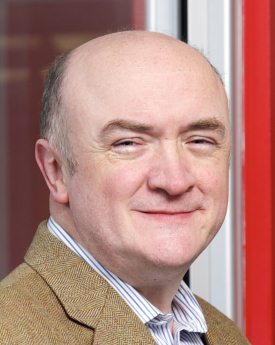Distinguished Speaker 2022: Professor Tony McEnery

- Date
- Wednesday 8 June 2022, 15:00-17:00
- Location
- Rupert Beckett Lecture Theatre + online broadcast
Language Matters
Professor Tony McEnery, Distinguished Professor of English Language and Linguistics at Lancaster University
The presentation will be followed by a round-table with local experts from different disciplines, including Mustapha Sheikh (Islamic studies), Mel Evans (English), John Gallagher (History) and Yen Dang (Education).
If you cannot attend in person, please register via eventbrite to attend via Zoom. The Zoom link will be sent to you a couple of hours before the event at the latest.
Abstract:
In this talk I will provide a series of case studies under one over-arching theme – across the social sciences, and beyond, language matters. It matters in a range of contexts and its effects can be assessed in a number of ways. Importantly it is a significant bearer of discourse and it is often in discourse that the relevance of language is realised in social context.
The study of discourse in linguistics, while pursued in depth for many years, has intersected only fleetingly with mainstream concerns in the social sciences. Through the case studies in the talk I will show that linguists can engage with other disciplines to help them to more effectively explore issues central to their discipline. Part of what linguists have to offer is their focus upon the language – that linguistic focus can offer unique perspectives on social issues due to its focus on the mechanisms and affordances of language. This engagement beyond linguistics in turn helps the drive towards the development of new measures and methods in linguistics. This talk will focus on one of these methods, corpus linguistics and more specifically corpus assisted discourse studies, an approach to the study of discourse based on the computer-aided analysis of large volumes of naturally occurring data.
Yet the interaction between linguistics and other disciplines is not a one way street – in engaging with other subjects linguists are forced to reflect on their own practices and come into contact with explanatory frameworks, for example, that allow them to socially situate what otherwise may simply be viewed as linguistic phenomena.
During the talk I will look at three case studies drawn from the work of the ESRC Centre for Corpus Approaches to Social Science at Lancaster University – Islamophobia in the UK press, patient feedback in the NHS and the use of bad language. Each study, based on the analysis of substantial bodies of textual data, will show some of the possibilities of cross-disciplinary work involving linguists.
